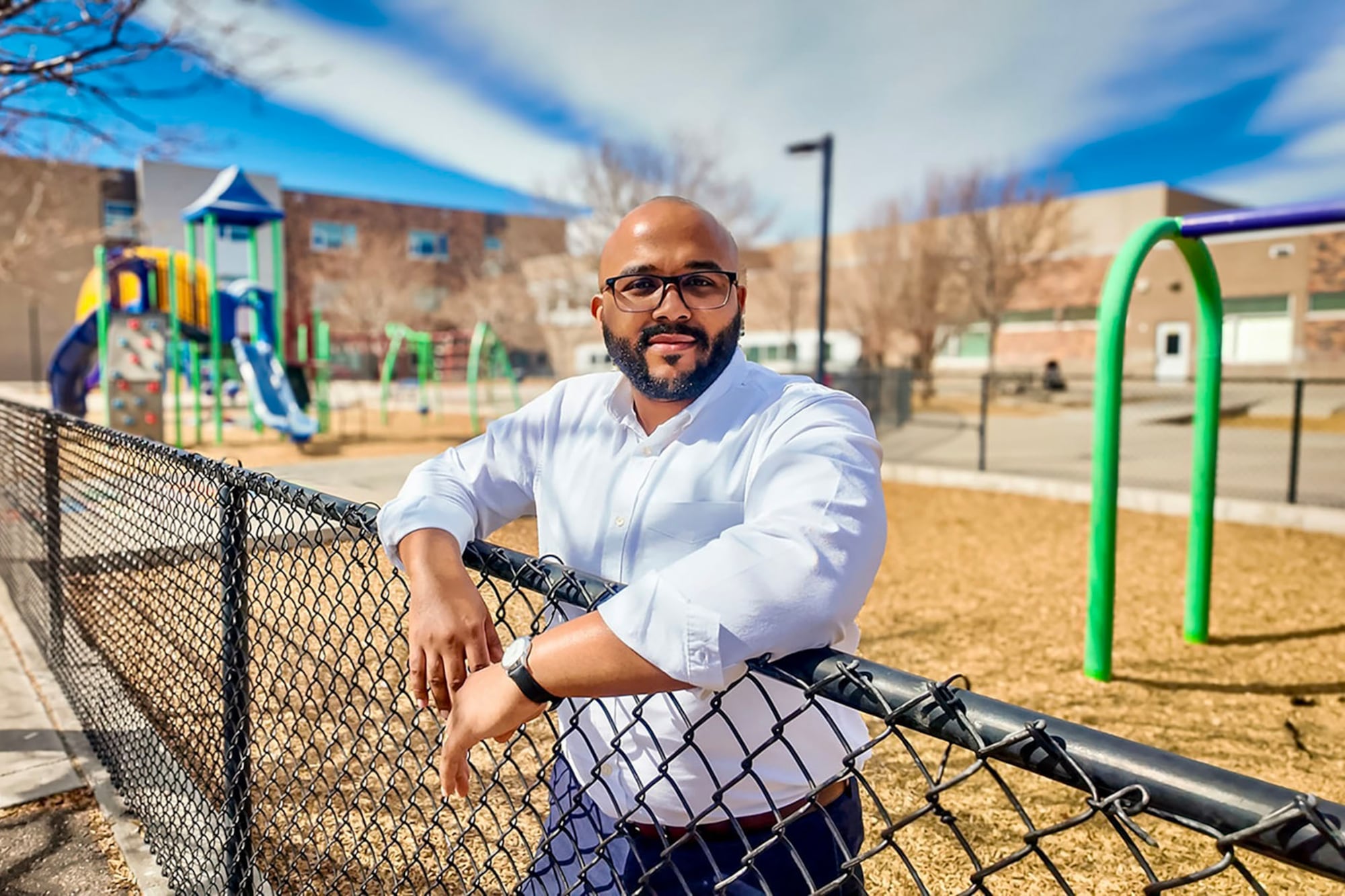Sign up for Chalkbeat Colorado’s free daily newsletter to get the latest reporting from us, plus curated news from other Colorado outlets, delivered to your inbox.
A mortician and father of a third grader who thinks Denver Public Schools is headed in the wrong direction is challenging school board member Michelle Quattlebaum for a seat representing northeast Denver.
Jeremy Harris said his views and those of Quattlebaum, who is running for a second term in District 4, are “night and day.” His campaign slogan is “a new era in education.”
“I get asked, ‘What does that mean?’” Harris said of his slogan. “It means we’re getting back to what works: safe, structured schools; strong academics; and a school board that is accountable to the people, not distracted by politics.”
Harris, 33, owns Harris Funeral Directors in Aurora. He and his family live in the Central Park neighborhood of Denver, where his son attends Swigert International elementary school. In addition to serving on the PTA at Swigert, Harris said he volunteers to read with students once a week at Stedman Elementary with the nonprofit organization Partners in Literacy.
“One of the priorities in my campaign is that most of the kids aren’t reading on grade level,” Harris said. “I’m seeing it firsthand in the classroom.”
Four seats on the seven-member Denver school board are up for grabs in November. Board members backed by the Denver teachers union currently hold the majority of board seats. But that could change in this election, which comes at a key time for DPS.
Declining enrollment has led to more than a dozen school closures in the past two years. DPS has also found itself in the crosshairs of the Trump administration over an all-gender high school restroom, and it has sued the federal government to protect immigrant students.
DPS achieved its highest-ever graduation rate last year, but some students are still recovering from pandemic-era learning loss. Many teachers are mad that they were denied higher cost-of-living raises while the superintendent got a bonus. The school board’s reputation also took a hit during a period of public infighting, which has since calmed down.
School safety has been a hot topic following a string of high-profile gun incidents. Harris said he supports the decision to return armed school resource officers to Denver schools, which Quattlebaum voted against. Harris said he also supports finding alternative settings for disruptive students; he suggested an in-school suspension room staffed by teachers.
“I don’t believe safety has to come with handcuffs, but in certain situations, resource officers are needed at schools,” Harris said. “Teachers shouldn’t have to break up fights; teachers shouldn’t have to be security. Teachers should teach.”
Harris is calling for DPS to focus on the “core academics” of reading, math, science, and civics. On his website, he says DPS should promote “appreciation for American values.” He said he is firmly opposed to teaching elementary and middle school students about LGBTQ+ issues or critical race theory, a catch-all term for lessons about race and racism.
“Classrooms should not be used for political or ideological agendas,” Harris said. Students, he said, “should not be made to feel guilty” because of their background.
Lessons about racism or discussions of transgender rights are more appropriate for high school students, Harris said. He added that “we shouldn’t be focused on kids choosing their gender when they can’t read or write.”
If elected, Harris said he would push to cut the salaries of top central office staff to hire more math, reading, and behavior interventionists. He’d also support getting rid of stipends for school board members. Current policy allows board members to be paid up to $33,000 a year.
“You should do this work because you want to do this work,” he said.
The board has come under scrutiny for meeting in closed-door executive sessions to discuss topics such as the superintendent’s contract. Harris said that if he’s elected and the board votes to go into an executive session, “I’m going live on my phone. I’m always going to make sure District 4 knows what’s going on.”
State law requires school board members to sign an affidavit stating that they will comply with executive session confidentiality requirements and restrictions.
Since announcing his candidacy earlier this month, Harris said the question he gets most often from voters is whether he supports DPS Superintendent Alex Marrero.
“If we are seeing continued dysfunction, lack of transparency, and no academic gains, it’s absolutely fair to consider new leadership,” Harris said. “Our students can’t wait any longer.”
Melanie Asmar is the bureau chief for Chalkbeat Colorado. Contact Melanie at masmar@chalkbeat.org.







